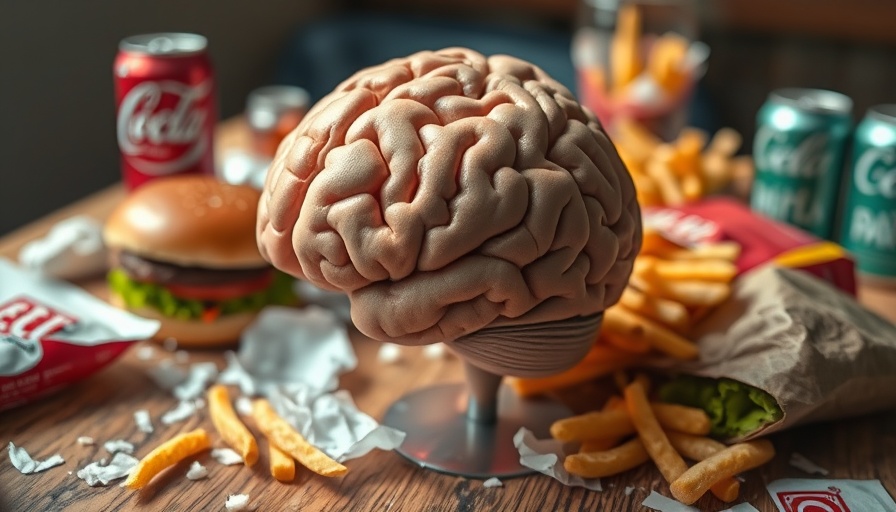
Impact of Diet on Cognitive Function: New Findings
Recent research conducted by the University of Sydney has established a link between high-fat, high-sugar (HFHS) diets and impaired cognitive function, particularly regarding spatial navigation. This study marks a significant advancement in understanding how dietary choices not only affect physical health but also cognitive capabilities, especially among professionals managing technological advancements.
Understanding Spatial Navigation and Memory
Spatial navigation is crucial for everyday activities, allowing individuals to learn and remember ways to travel from one point to another. Linked closely with the brain's hippocampus, this ability can decline with poor dietary habits. The study revealed that participants with lower consumption of refined sugar and saturated fats demonstrated superior performance in tasks that assessed their memory and navigation skills.
The Study: Methodology and Results
A total of 55 university students, aged 18 to 38, participated in the study. The participants completed dietary questionnaires detailing their intake of sugary and fatty foods, underwent working memory assessments, and navigated a virtual maze designed to test their memory of spatial layouts. This experimental setup was pivotal in illustrating how HFHS diets could impair cognitive performance.
In particular, participants with a healthy dietary profile were consistently better at identifying the previous location of treasures in the maze when memory was the only factor in play. These results emphasize that frequent consumption of HFHS foods negatively correlates with spatial memory accuracy.
The Good News: Reversing Cognitive Decline
Dr. Dominic Tran, the lead researcher, spearheads a hopeful narrative: dietary changes can lead to improved hippocampal health, suggesting that cognitive impairment linked to diet is reversible. This statement is particularly relevant for business professionals in high-pressure, technology-driven environments where mental sharpness is essential for daily decision-making.
Broader Implications for Professionals
As workplaces become increasingly tech-centric, the mental acuity of employees is paramount. The shift towards remote work has further normalized the consumption of convenient yet unhealthy food options, inadvertently shaping workplace productivity. Given the findings of this research, there are compelling arguments for corporate wellness programs to promote healthier eating habits among employees.
Practical Tips for Dietary Improvements
To support cognitive abilities and well-being, individuals can consider various actionable steps:
- Educate Yourself: Understanding the types of foods that support cognitive health can guide better choices.
- Meal Planning: Set aside time each week to plan and prepare meals that are low in added sugars and saturated fats.
- Snack Smart: Replace sugary snacks with fruit, nuts, or yogurt to maintain energy without cognitive decline.
- Hydration: Don’t underestimate the power of water; dehydration can also adversely affect cognitive abilities.
Being informed about how diet affects brain health empowers professionals to make healthier choices that could enhance their work efficiency.
Conclusion: Prioritizing Dietary Risks
The research highlights the importance of dietary choices, which should not be overlooked in today’s fast-paced, tech-driven workplaces. With the command to maintain cognitive function and efficiency, being conscious of our eating habits goes beyond just health—it’s a vital factor affecting your professional performance. Consider reevaluating your dietary habits today for a healthier brain tomorrow.
Call to Action: As leaders and decision-makers in your industry, take charge of your cognitive health by prioritizing better dietary choices. What will you change today to improve your mental acuity?
 Add Row
Add Row  Add
Add 




 Add Row
Add Row  Add
Add 

Write A Comment